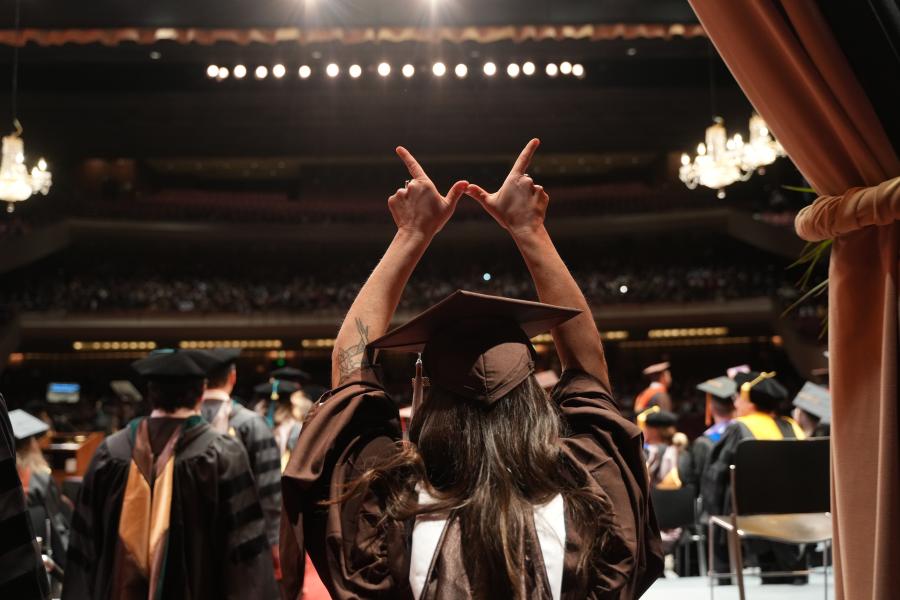Guidelines for Stewarding our Institutional Voice
The Western Michigan University community consists of students, faculty, staff, alumni and donors from a wide array of lived experiences from across our state and around the world. As a public university, the people of Michigan also have a stake in our core mission of providing a high-quality educational experience and advancing the public good through research and creative scholarship. Free speech and academic freedom are essential ingredients in our ability to accomplish that mission. Stewardship of free speech and academic freedom requires that the University be vigilant in considering whether its actions intentionally or unintentionally inhibit free speech and inquiry across our community. Careful stewardship of our institutional voice is crucial in this regard as well as to ensure that when the University speaks, it is able to advance our core mission of education, research and creative scholarship.
The guidelines set forth in this document formalize and clarify our practice around issuing official statements on social, political or geopolitical matters. They are designed to ensure that the University's voice is used thoughtfully, effectively and in alignment with its core mission. A bedrock principle of that mission is to create the best conditions for the pursuit of truth and critical thinking. This principle is foundational to intellectual inquiry and discovery that creates and transfers knowledge, transforms knowledge to wisdom and enables wisdom to guide our actions.
Criteria for messaging
Issuing statements on matters external to the University is undertaken only when the matter at hand meets specific criteria that warrant a formal public response including:
Mission alignment
An official statement will only be considered if the matter directly affects the University’s mission, ability to operate or the well-being of our campus community members in their roles as students, faculty or staff. The relevance of an issue will be determined in the context of our academic mission and institutional responsibilities.
Direct impact on campus community
A matter must directly impact campus community members in connection with their role at the University. While important, general societal concerns do not automatically warrant an institutional response unless the matter has a significant effect on the University community member’s ability to teach, learn, conduct research or creative scholarship, or otherwise work within the institution.
Potential for tangible impact
The practice of issuing statements must be grounded in the ability to spur real change. If an official statement is unlikely to contribute meaningfully to addressing the concern, mitigating harm or lead to actionable outcomes, issuing a statement may be deemed performative and actually detract from the importance of the issue at hand. While as individuals we care deeply about many global and societal concerns, we won’t issue institutional statements unless there’s a clear, tangible impact on our teaching, learning, research mission or daily University life.
Avoidance of “message fatigue”
Overuse of institutional statements can lead to message fatigue, undermining the impact and perceived importance of critical communications. Stewarding the institution’s voice means ensuring that when statements are made, they carry weight and significance.
Due deliberation
Even when a matter aligns with the above criteria, the University will take time to assess the situation thoughtfully before making an official statement. Understanding of complex issues often evolves over time, and issuing an official statement prematurely may give the impression of delivering a final say on matters that remain unsettled. It’s critical to ensure our responses add value and are not merely reactions in the moment without due deliberation.
Commitment to viewpoint diversity and open discourse
Western is committed to fostering a campus environment that encourages intellectual debate, freedom of inquiry and diverse perspectives. By careful stewardship of that environment, we can best pursue truth and ensure that we fulfill our mission. Official pronouncements can chill that environment, discouraging individuals from expressing divergent views and potentially limiting the pursuit of truth. As a public higher education institution, our priority is to create a space where all members of the campus community feel empowered as individuals to engage in critical discourse, even on complex and divisive topics. The University’s role is to provide the forum for this discourse. Taking positions, advocating for a particular point of view or otherwise participating in the discourse itself diminishes the very environment the University seeks to create.
As we steward the institution’s voice, we will use it judiciously in support of our mission and core values. We also recognize that tragic and traumatic events can deeply affect members of our campus community, causing anxiety and distress. These events, as well as the imagery and rhetoric surrounding them on social media, news media and through other sources can be particularly troubling. We encourage those in need of support to access the available resources at the University, which are designed to help individuals process and cope with difficult emotions. Counseling resources, such as WMU Counseling Services and Uwill, are available to students, and the Employee Assistance Program is available for faculty and staff.




